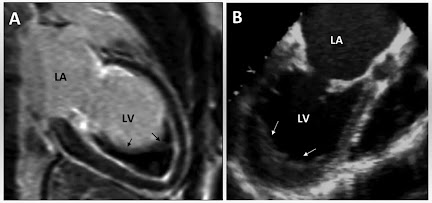Gastritis
Also known as Stomach inflammation, Gastric mucosal inflammation, Gastric irritation. Gastritis refers to the inflammation, irritation, or erosion of the gastric mucosa (the lining of the stomach). It can occur suddenly (acute gastritis) or gradually over time (chronic gastritis). The condition may be caused by various factors, including infections, medications, or autoimmune disorders.
History
The term "gastritis" originates from the Greek words "gastro" meaning stomach and "-itis" indicating inflammation. Descriptions of gastric ailments date back to ancient Egypt and Greece. Modern medical understanding of gastritis began in the 19th century with advancements in pathology and gastroenterology.
Types/Classifications
-
Acute Gastritis:
- Sudden onset and short duration
- Often caused by infections or medications
-
Chronic Gastritis:
- Long-standing inflammation
- Divided into three types:
- Type A (Autoimmune)
- Type B (Bacterial, commonly Helicobacter pylori)
- Type C (Chemical or Reactive)
-
Erosive Gastritis:
- Causes visible damage to the stomach lining
-
Non-erosive Gastritis:
- Inflammation without erosion
-
Special Types:
- Radiation-induced gastritis
- Lymphocytic gastritis
- Eosinophilic gastritis
Pathophysiology
Gastritis occurs when the protective mucous barrier of the stomach is compromised, allowing gastric acids to damage the underlying tissue. This leads to inflammation, swelling, and mucosal injury. In chronic gastritis, persistent inflammation can lead to atrophy, intestinal metaplasia, and even gastric cancer.
 |
| Common causes of Gastritis |
 |
| Factors influencing H. pylori |
Clinical Features
Cardinal Signs and Symptoms
- Epigastric pain or burning sensation
- Nausea and vomiting
- Loss of appetite
- Bloating and belching
- Indigestion (dyspepsia)
- Hematemesis (vomiting blood) in severe cases
- Black or tarry stools
Diagnosis
- Medical History and Physical Examination:
- Assessment of symptoms and potential triggers
- Endoscopy:
- Visual examination of the stomach lining
- Biopsy:
- Histological examination to assess inflammation
- Laboratory Tests:
- H. pylori testing (breath, stool, or biopsy)
- Complete blood count (CBC)
- Imaging Studies:
- Barium swallow radiographs (in selected cases)
Differential Diagnosis
- Peptic ulcer disease
- Gastroesophageal reflux disease (GERD)
- Zollinger-Ellison syndrome
- Functional dyspepsia
- Gastric cancer
- Pancreatitis
Comparison Table of Gastritis Types
|
Type |
Onset |
Cause |
Features |
Diagnosis |
|
Acute |
Sudden |
Infection, NSAIDs, alcohol |
Severe epigastric pain |
Endoscopy |
|
Chronic A |
Gradual |
Autoimmune |
Anemia, vitamin B12 deficiency |
Autoantibody test |
|
Chronic B |
Gradual |
H. pylori |
Nausea, dyspepsia |
H. pylori test |
|
Chronic C |
Gradual |
Bile reflux, drugs |
Mild symptoms |
History & endoscopy |
|
Erosive |
Sudden |
Stress, alcohol |
Hematemesis |
Endoscopy |
Treatment/Management
Allopathic Medicine
- Proton Pump Inhibitors (PPIs): Omeprazole 20 mg/day for 4-8 weeks
- H2 Receptor Blockers: Ranitidine 150 mg twice daily for 4 weeks
- Antacids: Aluminum hydroxide as needed
- Antibiotics (for H. pylori): Amoxicillin 1g twice daily + Clarithromycin 500 mg twice daily for 14 days
- Mucosal Protectants: Sucralfate 1g four times daily for 4 weeks
Homeopathic Treatment
- Nux Vomica 30C: 3 times daily for 7 days (for gastritis from overeating or alcohol)
- Arsenicum Album 30C: Twice daily for 5 days (for burning pain and vomiting)
- Carbo Veg 30C: 3 times daily for bloating
Unani Medicine
- Habbe Asgand: 500 mg twice daily for 4 weeks
- Sharbat Anar: 20 ml before meals
- Safoof-e-khabsul hadeed: 1 tsp with honey twice daily
Diet Plan
- Recommended:
- Bland foods like oatmeal and bananas
- Lean proteins
- Probiotic-rich foods (yogurt)
- Herbal teas (chamomile, ginger)
- Avoid:
- Spicy and acidic foods
- Caffeinated beverages
- Alcohol and carbonated drinks
Therapies
- Stress Management: Yoga, meditation
- Acupuncture: To relieve gastric symptoms
Surgical Options
- Rare but may include partial gastrectomy in severe cases of atrophic or erosive gastritis
Complications
- Peptic ulcers
- Gastric bleeding
- Gastric cancer
- Pernicious anemia
- Gastric outlet obstruction
Recent Updates
- New research highlights the role of microbiota in gastritis management.
- Development of vaccines targeting H. pylori is underway.
- Novel PPIs with improved bioavailability are in clinical trials.
Summary
Gastritis is a common gastrointestinal condition characterized by inflammation of the stomach lining. Its management involves lifestyle modifications, dietary changes, and medication. Proper diagnosis and timely treatment can prevent complications and improve the quality of life.
References
- Everhart, J. E., & Ruhl, C. E. (2009). Burden of digestive diseases in the United States. Gastroenterology, 136(1), 91-101.
- Marshall, B. J., & Warren, J. R. (1984). Unidentified curved bacilli in the stomach of patients with gastritis and peptic ulceration. The Lancet, 323(8390), 1311-1315.
- Chey, W. D., & Wong, B. C. (2007). Treatment of Helicobacter pylori infection. The American Journal of Gastroenterology, 102(8), 1808-1825.
- Talley, N. J., & Ford, A. C. (2015). Functional dyspepsia. New England Journal of Medicine, 373(19), 1853-1863.
- Malfertheiner, P., Megraud, F., & O'Morain, C. A. (2017). Management of Helicobacter pylori infection—the Maastricht V/Florence Consensus Report. Gut, 66(1), 6-30.






No comments:
Post a Comment
Please do not enter any spam link in the comment box